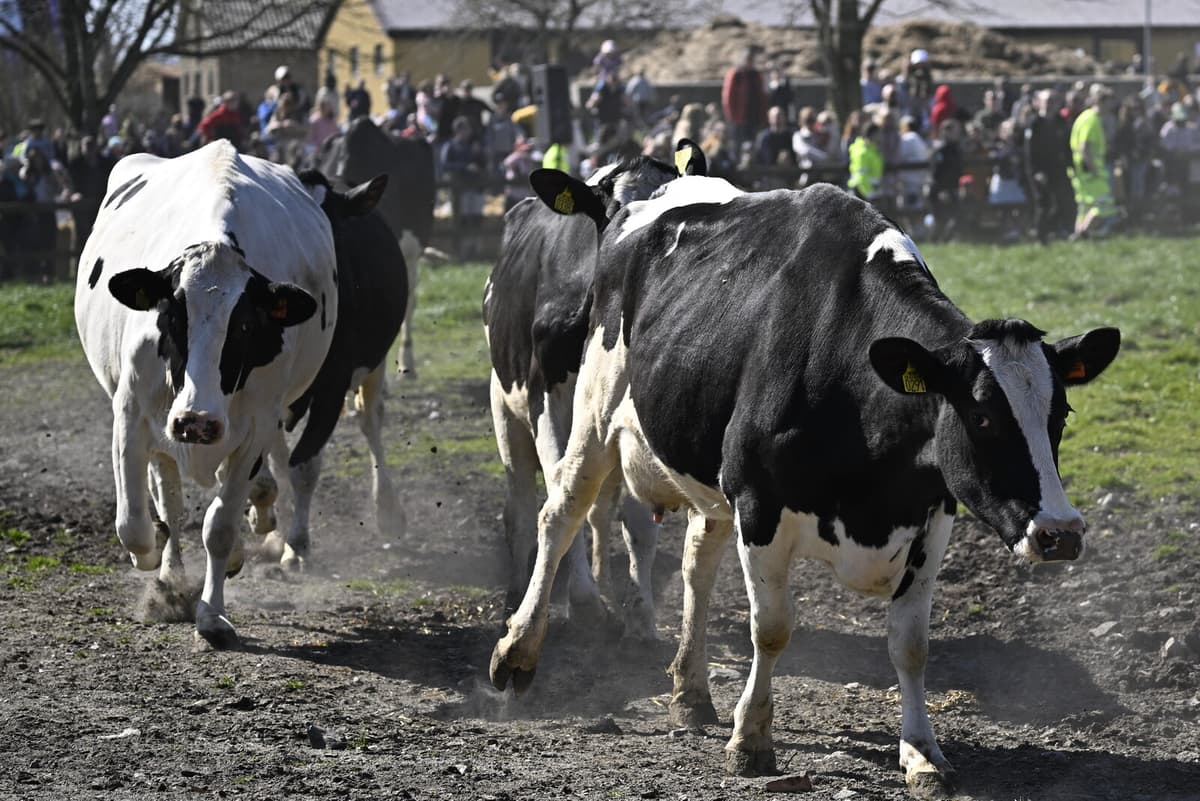It would be "remarkable and deeply unfortunate" if the government decides to go against existing research, writes the Swedish Veterinary Association in a statement.
Not giving dairy cows access to grazing is "in direct conflict" with the intentions of the animal welfare law, according to the County Administrative Board in Västernorrland.
Several other County Administrative Boards also say no.
The basis for the proposal contains "too many gaps and contradictions" to be the basis for such a far-reaching change as abolishing the grazing requirement for 80% of the country's dairy cows, according to the County Administrative Board in Jämtland.
Raises Concerns
The government's investigator presented a number of proposals last year to strengthen the competitiveness of meat and dairy farmers. The proposal to abolish the requirement for grazing during the summer for cows that can move freely indoors has raised significant attention.
The government has now received comments and criticism from many quarters. Several believe that the investigation does not have sufficient basis to claim that animal health would not be affected.
"Grazing is of great importance for dairy cow health", writes the Swedish University of Agricultural Sciences.
The scientific support is "overwhelmingly in favor of stating that abolishing the grazing requirement risks leading to seriously deteriorated animal health", writes Linköping University.
Linnaeus University points out that outdoor grazing is a fundamental need for cows, giving them space to explore, exercise, and socialize.
The Public Health Agency warns that the proposal could lead to health risks for humans as well, through the spread of zoonoses and increased antibiotic use.
Damages Reputation
The major daily goods chains, such as Ica, City Gross, and Coop, express concern through the Swedish Trade Federation's statement, about how consumers will react.
"The grazing requirement for dairy cows is one of the most well-known added values in Swedish animal production", it states, and they believe that the investigator has not sufficiently clearly described how the market and consumers would react to abolishing the grazing requirement.
Axfood sees an obvious risk that consumers' preferences for Swedish dairy products will gradually decrease.
Among the positive responses are Svensk Mjölk and the Swedish Dairy Farmers' Association, the Swedish Farmers' Federation, and some County Administrative Boards.
They point out that abolishing the grazing requirement would enable expansion and investments for dairy companies, including better and more modern cowsheds, leading to more dairy cows and thus more grazing animals in Sweden.
Peter Wallberg/TT
Facts: Grazing Requirement for Dairy Cows
TT
For all dairy cows in the country, it is required that they be kept on grazing land during the summer.
The requirement varies between 60 and 120 days depending on where in the country the cows are kept.
The proposal means that the grazing requirement would be abolished for dairy cows that can move freely indoors.
Dairy farmers would themselves decide when and if their animals should graze.
The investigation believes that the grazing requirement limits profitability and opportunities for expansion.
The requirement is considered to be a competitive disadvantage on the global dairy market.
According to EU rules, the requirement prevents the state from providing additional support for grazing.
The assessment is that the proposal would not lead to deteriorated animal welfare.
It is likely that most dairy farmers would still choose to keep their cows on grazing land.
Source: SOU 2024:56






